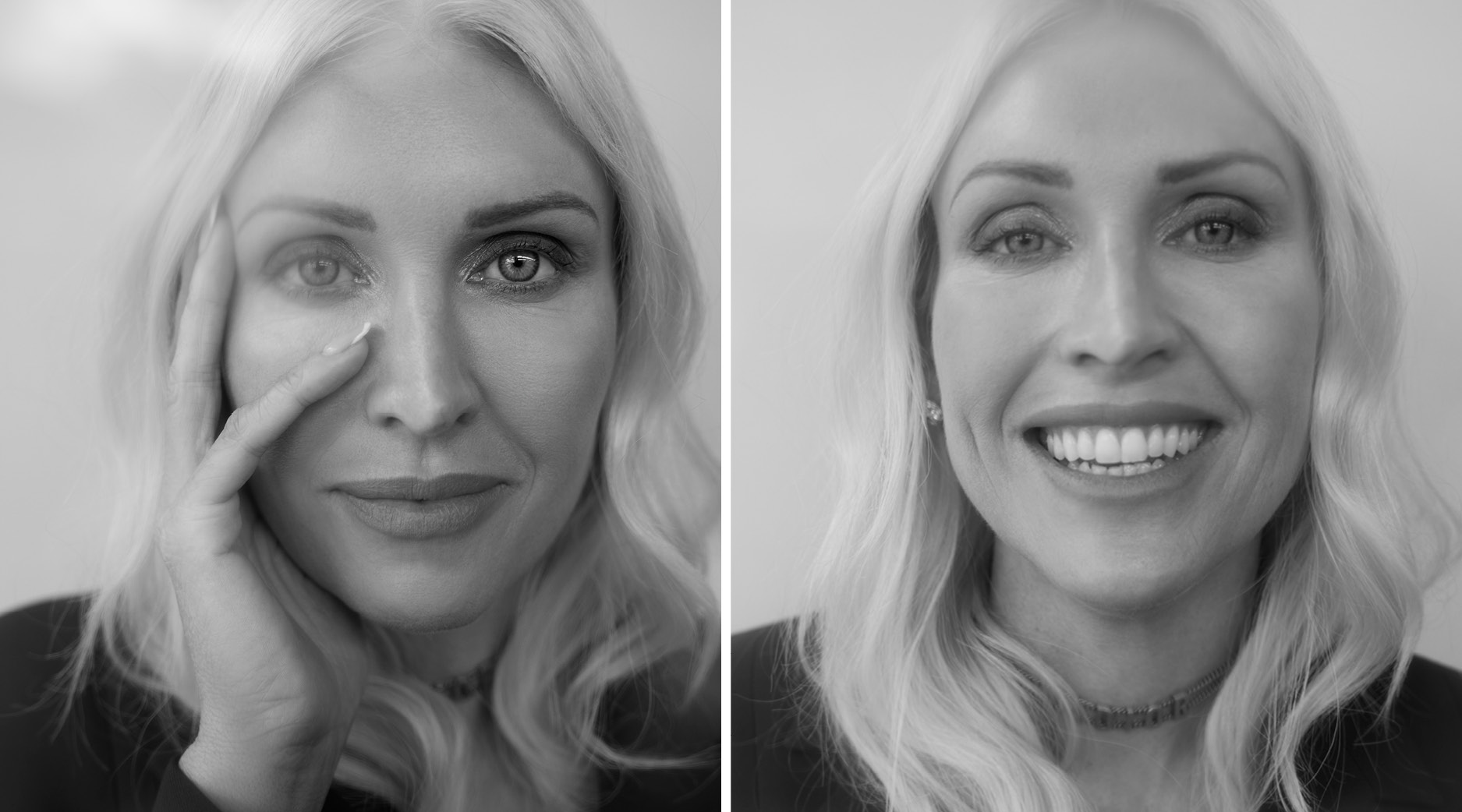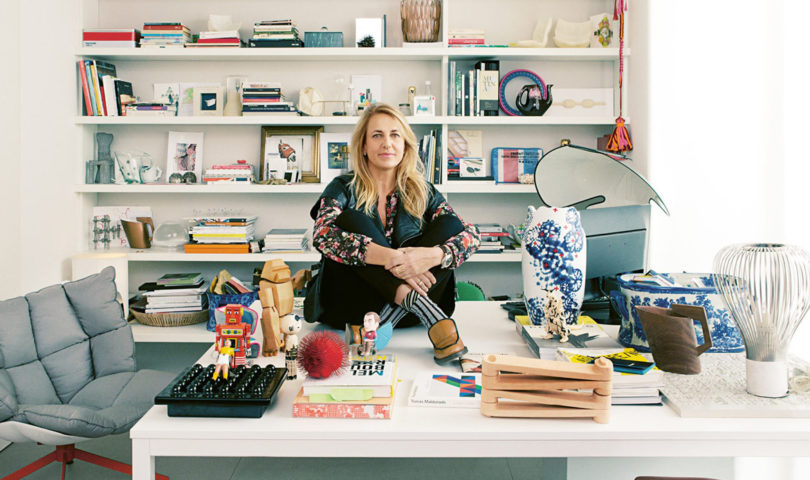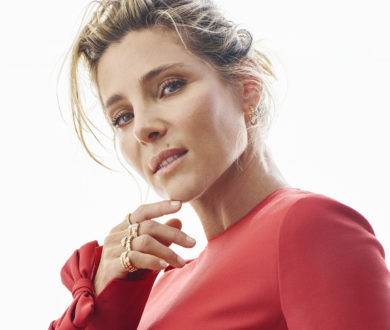‘Punching above our weight’ is a phrase so entrenched in the Kiwi vernacular that it should be written on our passports. We like to think of ourselves as a country that exceeds expectations and excels beyond what our resources might suggest is possible — going so far as to entangle our sense of national pride with that very idea. But the promise of celebrating success and the act of doing so (particularly when one of our own really does go off and succeed on an international scale) are two very different things. And while it’s true that we have a number of hugely-talented entrepreneurs in New Zealand, there is a lot more to be done to support the global aspirations of those with bright ideas — especially if we want to celebrate success for real (and not just with glib one-liners). Having experienced this first-hand, Anna Mowbray is an entrepreneur who wants to shift the paradigm, and encourage others in the process.
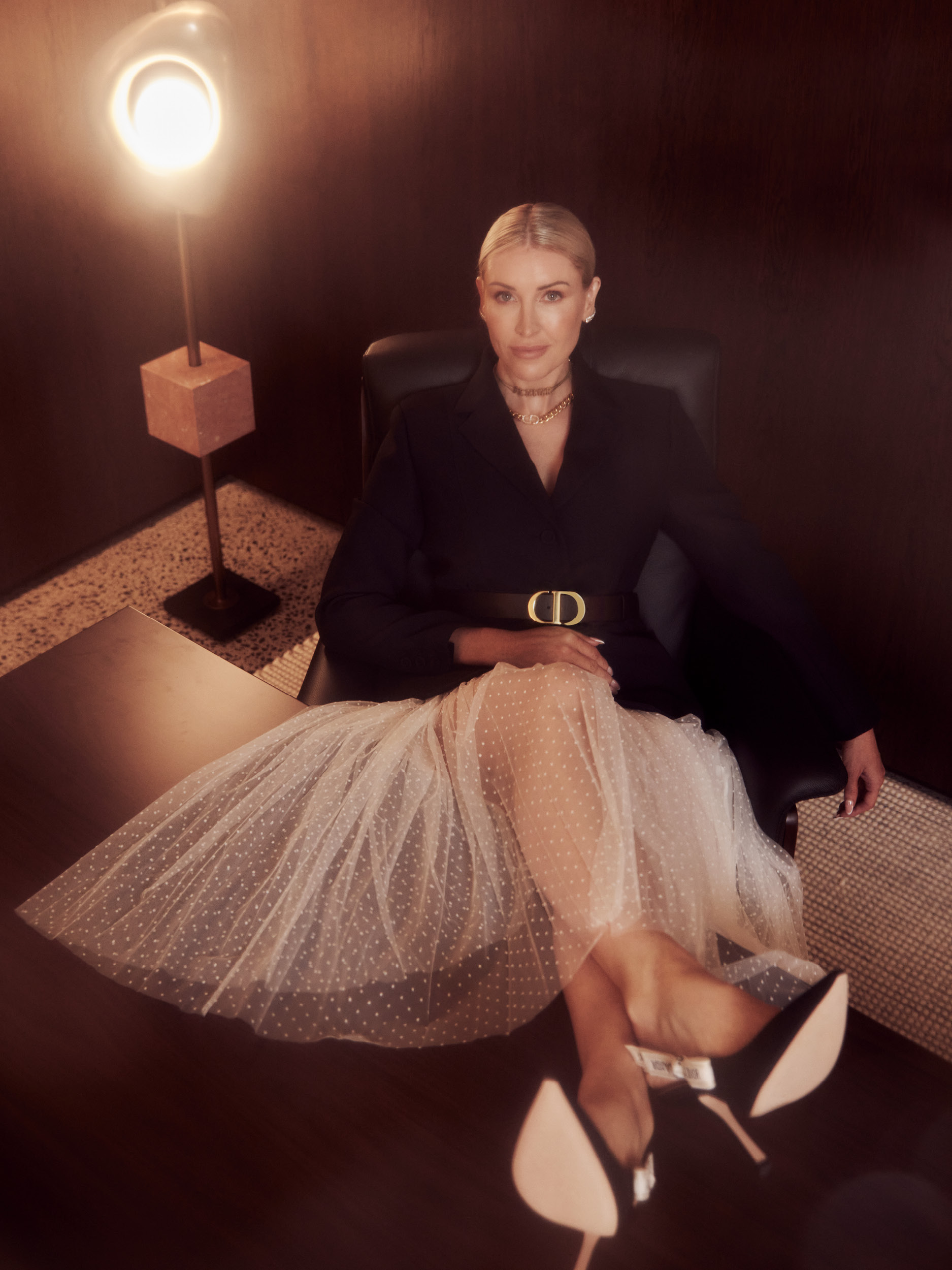
You’ll no doubt be familiar with the story of Zuru. Started by Kiwi siblings Anna, Mat and Nick Mowbray almost 20 years ago, the company has, thanks to the immense determination of its founders, grown from humble beginnings in the shed of a Waikato farm to one of the most prolific toy companies on the planet — headquartered in Hong Kong but with operations spanning the globe. Its products are iconic (from Mini Brands to Bunch O Balloons to X-SHOT) and its reach is immense (one of the top 10 toy companies globally, Zuru now has an annual revenue in the billions, sells its products in over 120 countries and has recently branched into fast-moving consumer goods with considerable success). But perhaps most significantly, its founders stand apart from their competitors for their Kiwi ingenuity, single-minded perseverance and never-say-die attitude — a potent, propulsive mix.
That is the first thing that strikes me about Anna Mowbray. The director and co-founder of Zuru carries herself with the kind of confidence and sure-footedness that could only have come from years of self-belief and a mindset anchored in the idea that nothing is outside the realm of possibility (if you’re willing to put in the hours).
“We had a very idyllic, very humble upbringing, and my parents sacrificed a lot,” Mowbray tells me, describing a childhood of bare feet, Vegemite sandwiches, friendly competition with brothers and seminal lessons around the importance of education, independence and grit. “My dad worked so hard, and he was really entrepreneurial,” she continues, “he always encouraged us to be self-motivated and self-employed, and to take risks and build our own futures, which was empowering to us as children.” It proved a crucial example for Mowbray, that instilled in her an insatiable hunger for success, and an outlook that left no room for complacency, laying the foundations for her future as a business leader. It was this drive that kept her moving forward, even in the face of daily challenges. After all, the path to success is rarely smooth.

“I think the biggest misconception people have about me is that success came overnight,” Mowbray reveals, laughing. “They don’t know that it has taken 17 years of determination, tenacity, huge hours and massive sacrifice,” she explains, “I spent most of my twenties in a small town in China, not knowing the language or the culture, sleeping on factory floors, living hand-to-mouth with no outside investment, and setting up this business with nothing more than a vision for creating the largest toy company in the world.”
That Mowbray and her brothers built their business from throwing caution to the wind, relocating to rural China, diving into a space of which they knew very little, cleverly setting up their own vertically-integrated manufacturing facility and creating products to compete with the likes of Hasbro and Fisher Price, is a testament to their incredible dedication. Failure, as Mowbray tells me, was not an option. “In many ways, our naivety was our greatest blessing because it gave us this fresh perspective and positive mindset to be innovative and build something totally different,” she says. “From the outset we wanted to be as close to the problems and solutions as possible, so we established a supply chain that we owned completely — from ordering raw materials to creating the final products to marketing campaigns and strategy — and we quickly became the most knowledgeable company in the industry.”
Indeed, despite some early cashflow challenges, Zuru’s unapologetic approach of betting big and winning big paid off, resulting in products like Robo Fish (which sold 30 million units in 24 months), Bunch O Balloons and Mini Brands (both of which went straight to number one across all toy categories, globally). And while Zuru’s commercial success is undeniable (and much-discussed), what you probably don’t know is just how involved its founders still are in the day-to-day.

For Mowbray (inherently a problem-solver) this deep engagement with her company’s operations is something she loves. “I am always in the weeds, trying to understand where the problems lie and solving them efficiently,” she reveals. “I find I often spend less time in huge macro head spaces and more time focused on finding high-level solutions to everyday problems.” It’s a lesson in the value of simple, honest hard work and never being above the small stuff. Mowbray’s willingness to dedicate herself to finding solutions where others might not, and the voracious optimism that allows her to see any challenge as an opportunity, really is the secret sauce to her success. It also makes her a better leader.
“Anna has always led by example,” says Aneisha Viera, Global Brand Director at Zuru Toys. “She manages a huge cross-section of teams and departments including factories, sourcing, operations, sales, marketing, finance, demand, capacity planning, branding and more, and not only skims the top of these areas but engages deeply with their work, never missing a beat.” For Viera, Mowbray’s influence has been pivotal. “Even when I didn’t have confidence in myself, she saw something in me, and bestowed so much trust in me,” Viera continues, “she taught me what it means to be a leader, to get in the trenches with your team and the value of real, gritty, hard work… she also instilled in me the importance of balancing work with a meaningful life outside the office, for which I am so grateful.”
Indeed, what sets Mowbray very much apart as a leader, is the time she dedicates to ensuring that the people around her feel listened to and empowered. And, having spoken with those in her orbit, it is these qualities (well beyond any of her quantifiable accolades) that have earned the deep respect and admiration of her team.
“I am always thinking about how I can be doing things better or differently,” Mowbray explains, “and recently, I’ve come to learn the importance of being vulnerable, both in business and in my personal life.” As a businesswoman and a mother, Mowbray is no stranger to that neverending search for balance that is so familiar to many working women, telling me how, in the early days of Zuru, she would keep a cot in her office and change nappies on her desk during meetings. It’s an image that Viera also recalls in our conversation, telling me of one particular day in which Mowbray was into the office early and broke for a lunchtime workout before proceeding to breastfeed her youngest child while leading one of the most important licensing meetings of the year (finalising a deal that was crucial to one of Zuru’s biggest brands). “That day and every moment since,” Viera says, “whenever I have wondered or doubted if I ‘could do it,’ it’s that image of a workout-clothes-clad, breastfeeding, boss, CEO, nailing a multimillion dollar deal, that reminds me that I can do anything.”
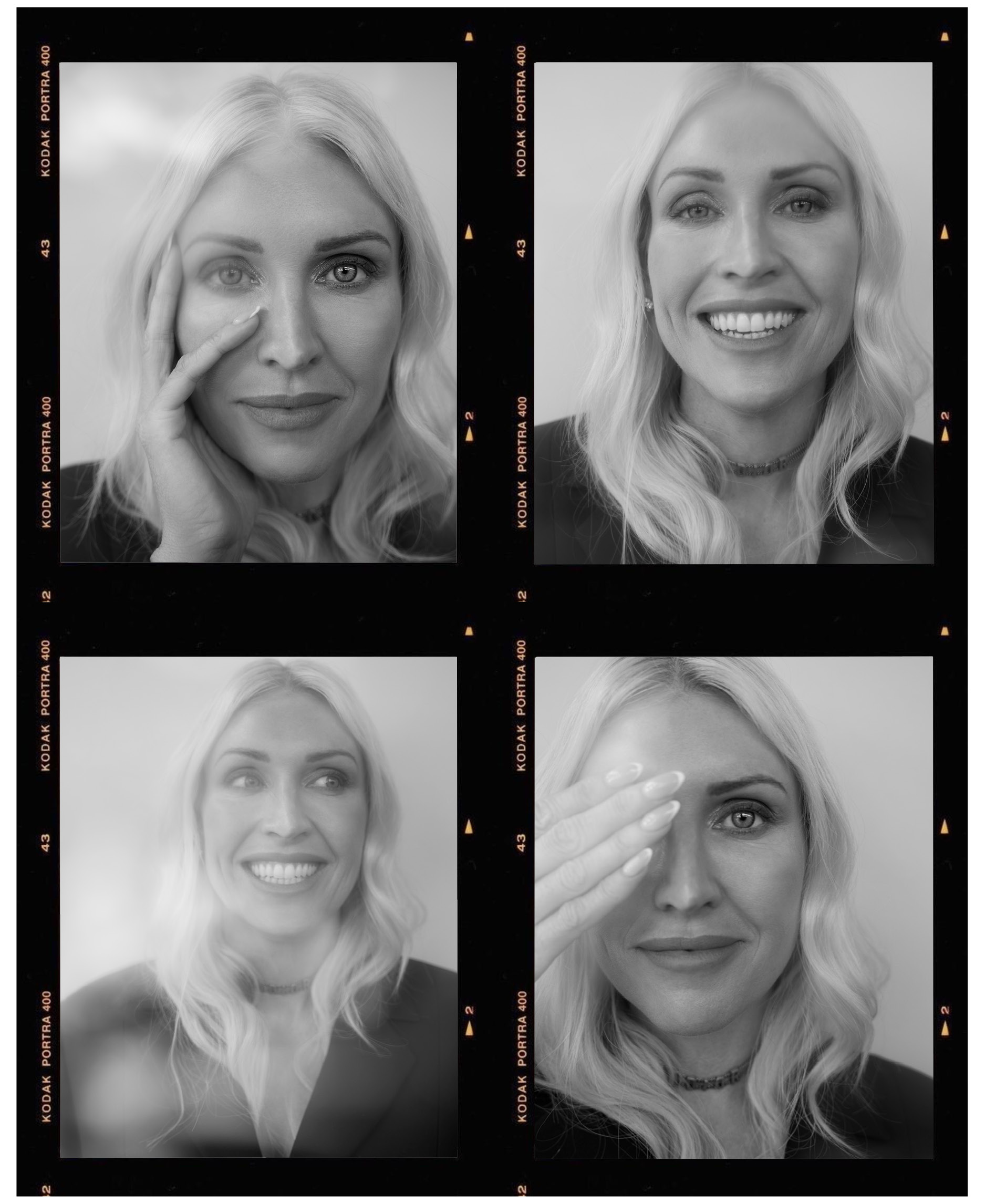
To me, Mowbray is something of an enigma. She is bold, unapologetic and a powerful force in business. But she is also warm, relatable and incredibly generous with her time; as focused on helping others tap into their potential as she is on her own personal growth. “I get so invigorated by the idea of being able to grow people on our team,” she explains, “under my leadership across our toy business at Zuru, we now have a 70 percent female workforce, with women in over half of our director and upper-management roles.” It is Mowbray’s influence that people like Aneisha Viera and others who work for Zuru, like Head of Global Content Strategy Bec Hunter, describe as transformative, both for their careers and on how they carry themselves through life. “Anna is an empathetic leader who empowers and motivates her teams” Hunter says, “I have learned a tremendous amount from her, her genuine enthusiasm for success, her global perspective and adaptive style.”
But as much as Mowbray dedicates time to facilitating growth internally, she also wants to encourage a shift in the wider attitude towards entrepreneurialism in New Zealand. “We have got some truly phenomenal entrepreneurial minds in this country,” Mowbray says, “but we need to be better at celebrating those risk takers and courageous individuals who are going out and trying something new. We need to create an environment here that encourages people to dream big and supports them to act on their ideas.”
So what does that actually look like? As Mowbray puts it, “fostering entrepreneurialism is about local connectedness and leaders, investors and entrepreneurs being more selfless with their journeys.” It is also, she tells me, about mentoring young talent, and encouraging successful businesspeople to take others under their wings. This month, Mowbray will judge the Rise Up awards, which sees globally ambitious female founders vying for a grant that will help take their businesses to the next level. “We’ve got ingenuity in spades,” says Mowbray, “but often, we are too reserved or scared to put ourselves out there for fear of judgement… if we celebrate and support those who aren’t afraid to dream big, we will build more homegrown models that can be looked up to and replicated.”
It’s also, of course, about how far the New Zealand government is willing to help, not only by growing the talent density here, but by making this country an appealing place to build a business. Or, at least, as somewhere to which expat entrepreneurs might want to return. “As a country”, Mowbray articulates, “we need to look at how we can support business at a higher level, in order to unlock New Zealand’s huge potential… whether that is policy change to allow for sustainable and profitable growth, or what tax breaks look like for businesses bringing hundreds or thousands of jobs here, or visa and immigration laws… it’s so important for the future of this country.”
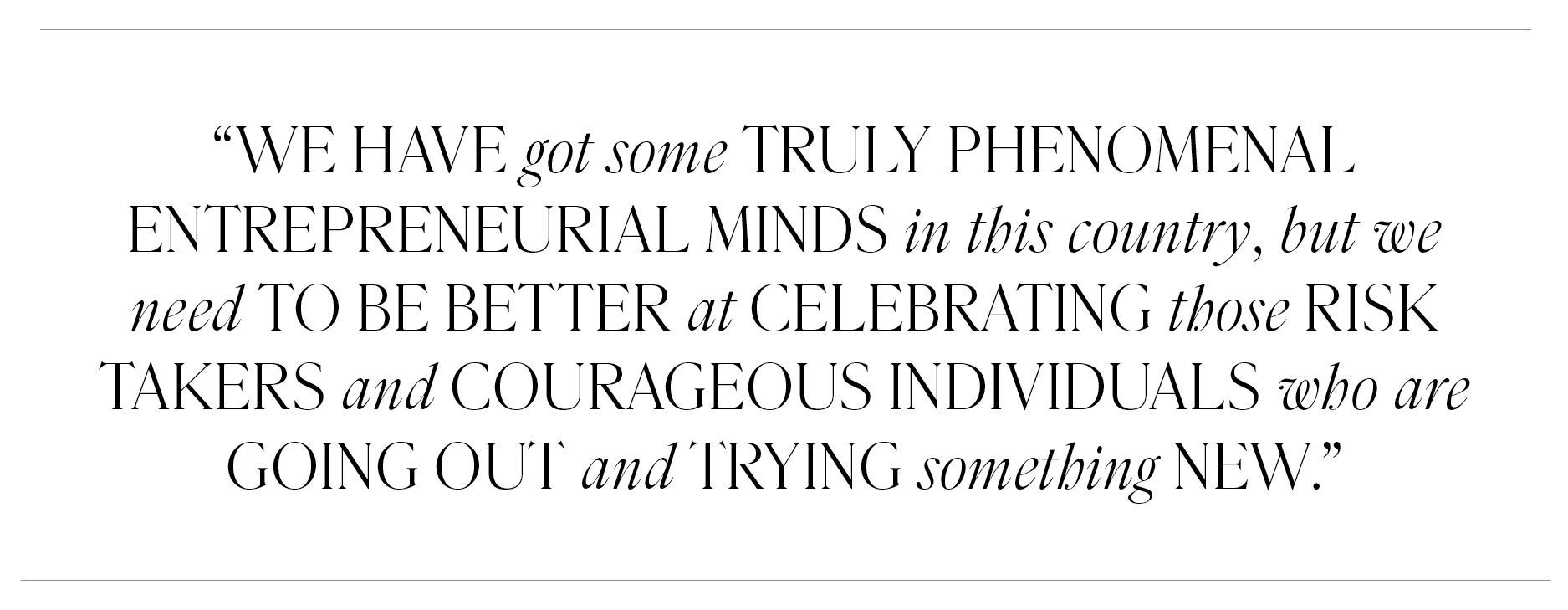
For Mowbray’s part, she explains how, since relocating her family back to New Zealand from Hong Kong (an unexpected, Covid-driven move) she has been involved in helping a number of start-ups here — some in an advisory role (such as healthcare accessibility platform, Health Now) and one as a founder (an HR-focused tech business — watch this space). And as much as she is still focused on growing Zuru’s already-considerable reach, she speaks to me as though she is just at the start of her journey. “I set this goal at the top of last year to get to a billion dollars of revenue across our toy business, and we smashed that,” Mowbray says, matter-of-factly, “so now, I have this desire to find new opportunities, new categories and new industries to conquer.” She continues, “I also want to figure out how we can solve different and more pressing problems in the world; we’ve brought a lot of joy and fun but now I’m thinking more about how I can make a difference in other ways.”
It is refreshing to talk to someone with such a relentlessly positive outlook; someone who looks at the challenges being served us by the world and sees only opportunities. When I ask Mowbray the advice she would give budding entrepreneurs who might feel discouraged by the last few years, she is practical and clear. “Create products with purpose,” she says. “Be a sponge for knowledge, learn as much as you can, shake as many hands as possible and be interested in people, learn what drives them to achieve greatness.” She pauses, before adding, “but above all, it comes back to the idea of vulnerability… seek out criticism and constantly challenge yourself by asking ‘how can I be better? How do I evolve?’”
Practising what she preaches, Mowbray is not naturally inclined to speak about herself (“this is not my happy place,” she jokes with me when we first sit down) but she puts this aside in the hope that sharing her story might inspire someone else to aim for the same kinds of lofty goals. After all, she and her brothers are living proof of the eye-watering success that can organically grow from hard work, good timing and unwavering self-belief.
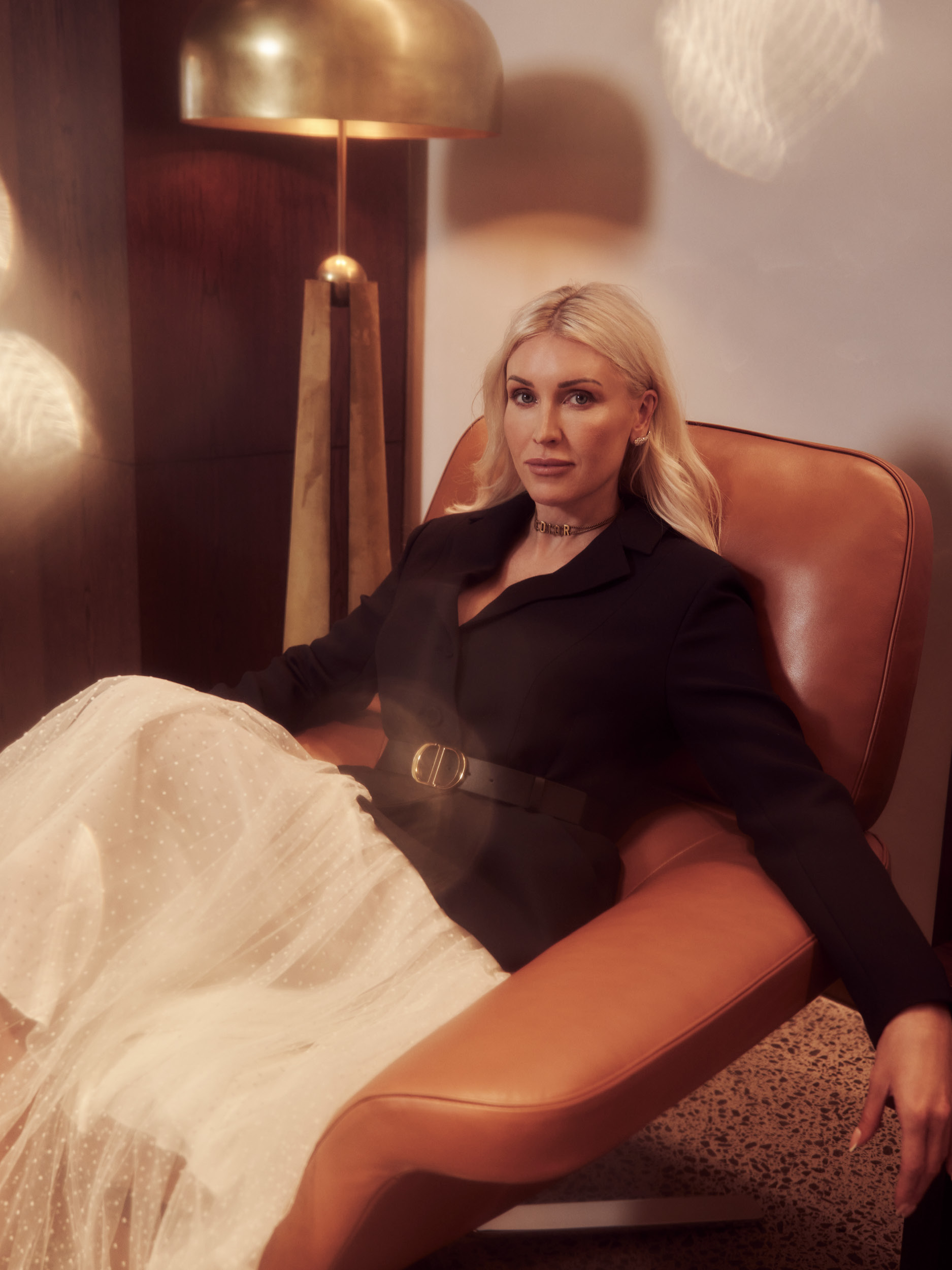
To me, what is most impressive (beyond her obvious career accomplishments) is Mowbray’s inherent generosity — made all the more impactful when paired with her unique ability to make things happen. When Covid-19 hit New Zealand, for example, she set up a task force in China to procure and manufacture PPE for New Zealand hospitals, not letting the fact that it was in very high demand and in very short supply stop her. And after spending hours on FaceTime and Zoom calls (“I spent a month working 18-hour days,” she tells me) to understand the criteria of manufacturing high-quality and stable PPE, she funded and chartered five Air New Zealand planes packed with essential supplies to ensure our national stockpile would be okay in the case of an outbreak.
“She cares deeply,” Aneisha Viera says, “and I don’t mean about the business (that’s a given — built into her DNA), she cares deeply about her team and about people.” Mowbray is a rare example of someone for whom success on an astronomical level has not eroded their ability to be grounded, practical and empathetic. And now, the entrepreneur is looking to the future. “I want to make sure that I am giving back and helping others to unlock their potential,” Mowbray reveals, “but I also want to see what I can do by applying my skills to new spaces. I want to be useful and to make a real difference.”
That said, Mowbray also plans on dedicating a large part of the next 10 years to raising her children, explaining to me how she and her fiance (former All Black, Ali Williams) are focused on bringing up good, humble citizens who pave their own paths and grow to be passionate and compassionate people. Because despite everything she has achieved, when asked what she wants her legacy to be, Mowbray doesn’t hesitate. “It’s such a big question,” she says, “but the answer is actually really simple… my greatest legacy is my kids.”
Whatever Mowbray chooses to do next, I have no doubt that she will continue to punch well above her weight. “I don’t want Zuru to be the greatest mountain I’ve ever climbed,” she tells me, a twinkle in her eye. And incredibly, I don’t think it will be.
Image credit: Styled by Claire Sullivan-Kraus. Hair and makeup by Alexandra Stanworth. Shot on location at ECC Minotti showroom.
